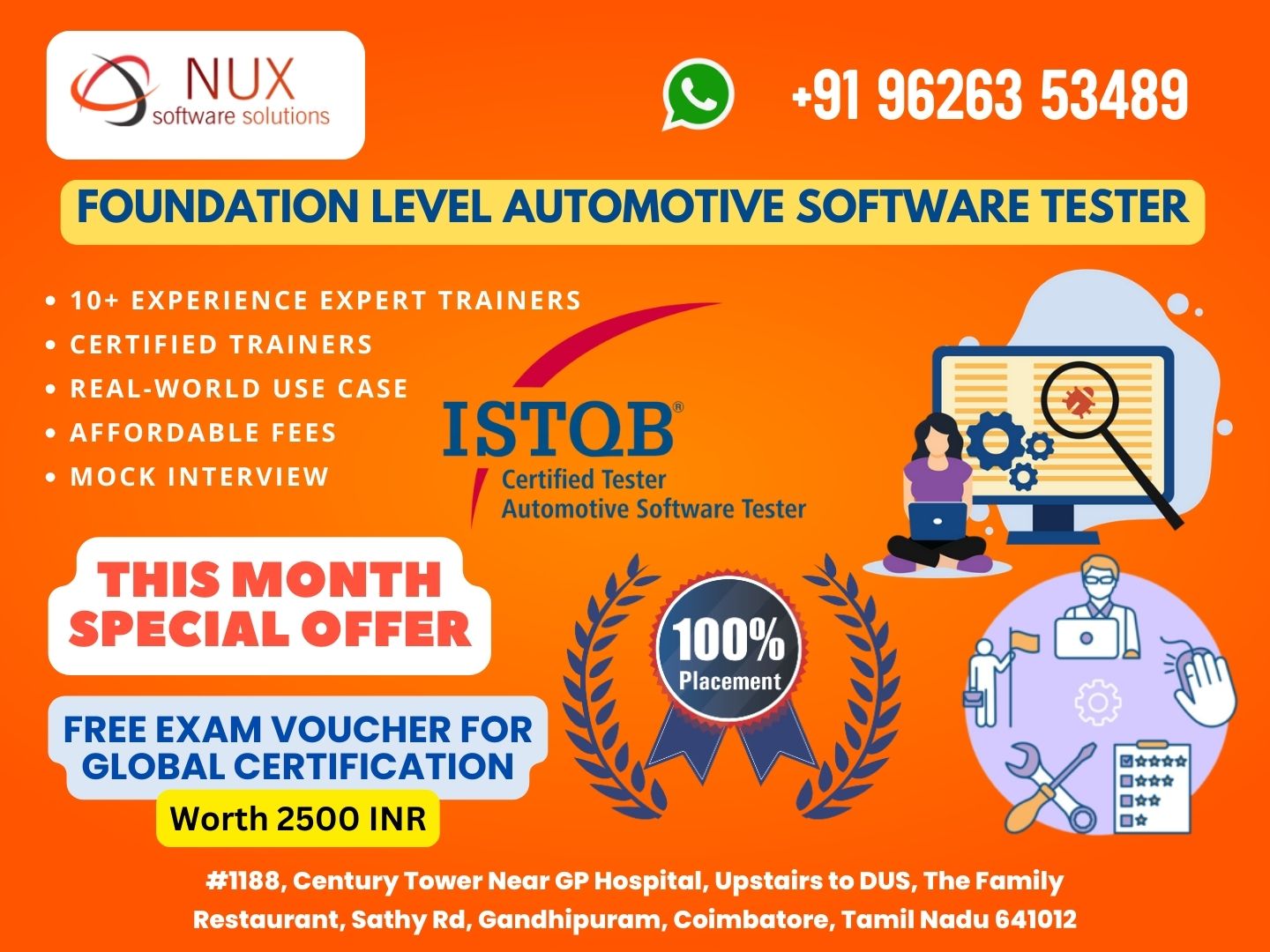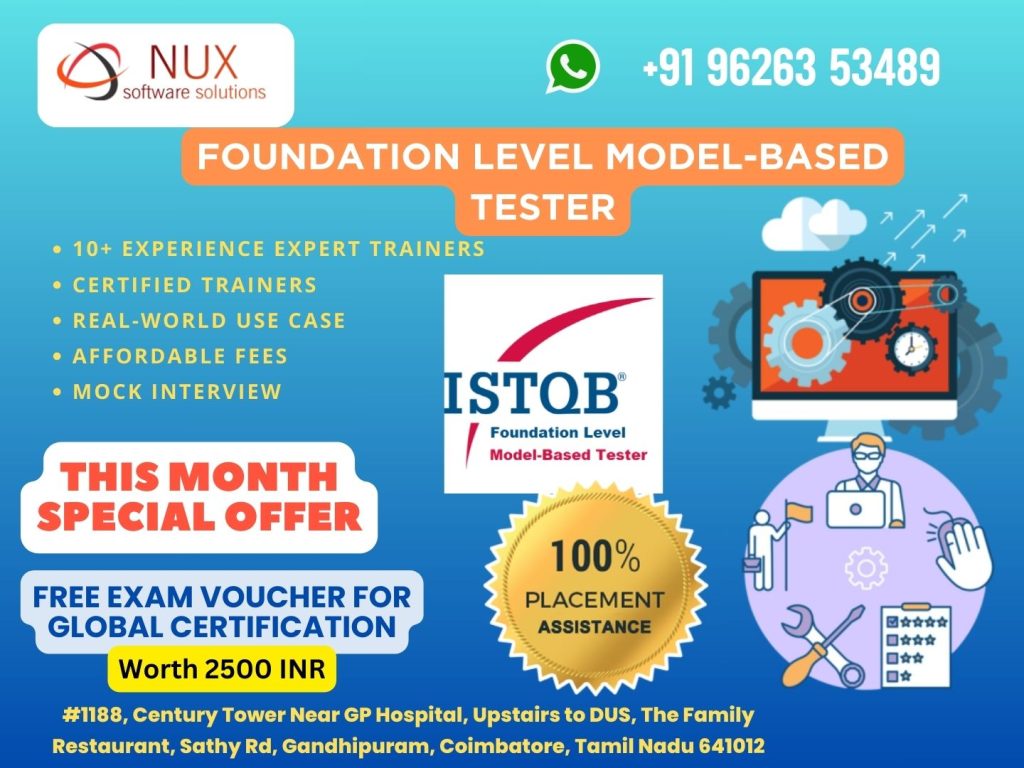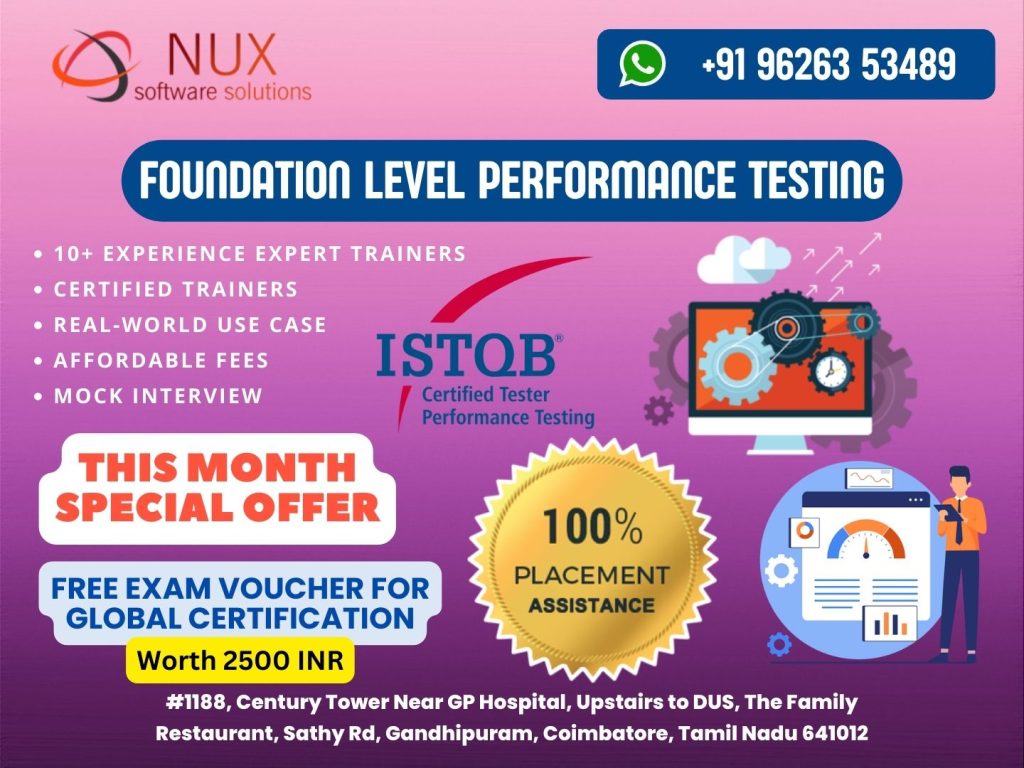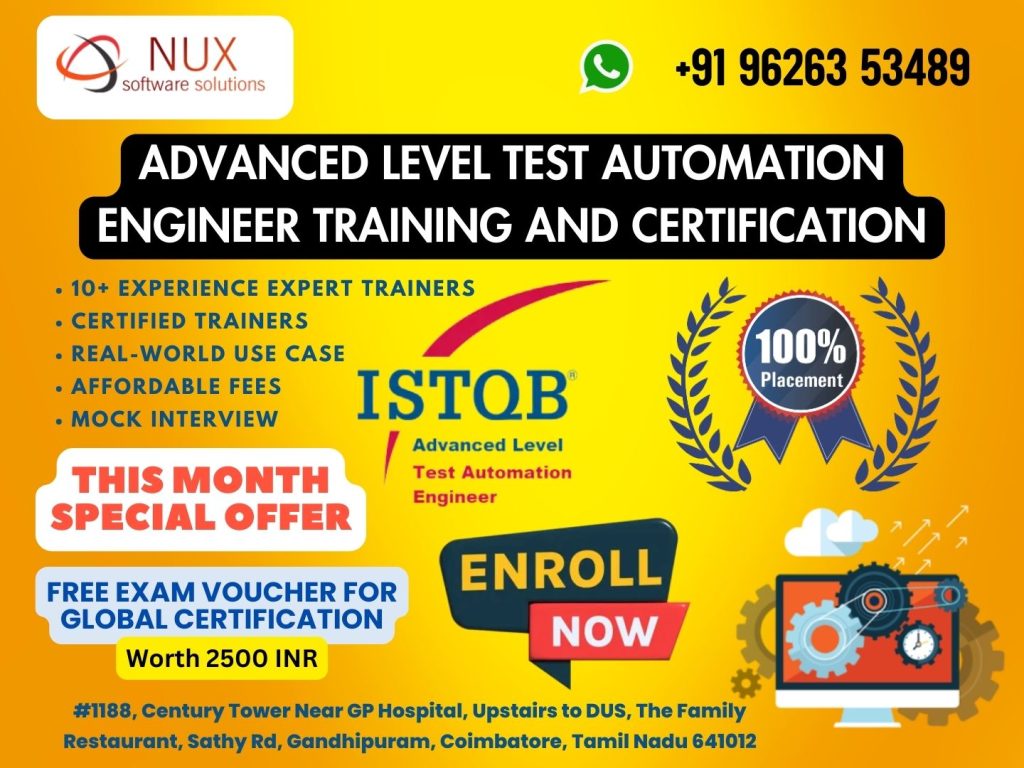Foundation Level Automotive Software Tester

ISTQB Foundation Level Automotive Software Tester Training in Coimbatore
Course Overview
The ISTQB Foundation Level Automotive Software Tester certification is designed for professionals working in the automotive domain who want to enhance their expertise in software testing specific to automotive systems. This course bridges the gap between general testing knowledge and automotive-specific software development and testing standards, such as ISO 26262, ASPICE, and AUTOSAR.
At our training center in Coimbatore, participants gain practical and theoretical insights into how testing is conducted within the automotive software lifecycle. The course helps learners understand the unique challenges and safety-critical nature of automotive systems and how to align testing processes with industry regulations.
Whether you’re a software tester, QA professional, or developer in the automotive field, this course equips you with the domain-specific knowledge required to build reliable and secure embedded systems in modern vehicles.
What You’ll Learn
Automotive software development lifecycle and testing processes
Standards and regulations in automotive software (ISO 26262, ASPICE)
Risk-based testing approaches for automotive systems
Testing of embedded systems and control units
Functional safety and the role of testers in ensuring system integrity
Requirements analysis, test design, and traceability in automotive projects
Integration of testing into automotive software development models
Who Should Attend?
Software Testers and QA Engineers working in automotive projects
Embedded Software Developers
Automotive Engineers and System Designers
Test Managers and Team Leads in the automotive sector
Professionals aiming to work in ISO 26262 or ASPICE-compliant environments
Key Benefits
Gain internationally recognized ISTQB certification in a high-demand domain
Learn how to apply industry standards and safety practices
Understand the lifecycle of testing in embedded and real-time systems
Get hands-on experience with automotive use cases
Improve your career opportunities in the rapidly evolving automotive sector
Why Choose Us in Coimbatore?
Industry-aligned curriculum focused on practical application
Trainers with strong experience in automotive testing and ISO compliance
Real-world automotive scenarios and project case studies
Mock tests, resume building, and interview preparation
Convenient batches and career mentoring support
Get certified as an Automotive Software Tester and build a career in the high-growth automotive industry. Enroll in our Coimbatore-based training today and accelerate your journey into automotive software testing.
Course Syllabus
Modules
Introduction to this Syllabus
1.0 Introduction
1.1 Requirements from divergent project objectives and increasing product complexity
1.2 Project aspects influenced by standards
1.3 The six generic phases in the system lifecycle
1.4 The contribution/participation of the tester in the release process
2.0 Standards for the testing of E/E systems
2.1 Automotive SPICE (ASPICE)
2.1.1 Design and structure of the standard
2.1.2 Requirements of the standard
2.2 ISO 26262
2.2.1 Functional safety and safety culture
2.2.2 Integration of the tester in the safety lifecyle
2.2.3 Structure and test specific parts of the standard
2.2.4 The influence of criticality on the extent of the test
2.2.5 Application of content from CTFL® in the context of ISO 26262
2.3 AUTOSAR
2.3.1 Objectives of AUTOSAR
2.3.2 General structure of AUTOSAR
2.3.3 Influence of AUTOSAR on the work of the tester
2.4 Comparison
2.4.1 Objectives of ASPICE and ISO 26262
2.4.2 Comparison of the test levels
3.0 Testing in a virtual environment
3.1 Test environment in general
3.1.1 Motivation for a test environment in the automotive development
3.1.2 General parts of a test environment
3.1.3 Differences between Closed-Loop and Open-Loop
3.1.4 Essential interfaces, databases and communication protocols of a electronic control unit
3.2 Testing in XiL test environments
3.2.1 Model in the Loop (MiL)
3.2.2 Software in the Loop (SiL)
3.2.3 Hardware in the Loop (HiL)
3.2.4 Comparison of the XiL test environments
4.0 Automotive-specific static and dynamic test techniques
4.1 Static test techniques
4.1.1 The MISRA-C: 2012 Guidelines
4.1.2 Quality characteristics for reviews of requirements
4.2 Dynamic test techniques
4.2.1 Condition testing, multiple condition testing, modified condition/decision testing



